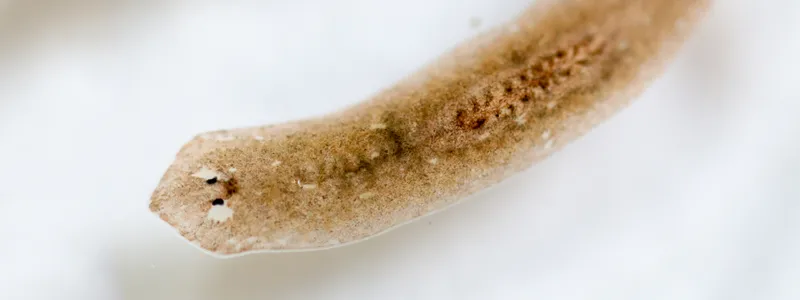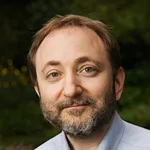
Photo by Rattiya Thongdumhyu, Shutterstock: Stanford bioengineers and materials scientists are working to edit the genes of tiny flatworms, like this one viewed under a microscope.
Stanford News - April 22nd, 2019 - by Nathan Collins
Slice it into a hundred pieces if you want, and the millimeters-long flatworm called a planarian won’t particularly care. Each piece can grow back into a new worm. But how they do that, and what scientists could learn about how to regenerate our own bodies, has remained mysterious because one of the most valuable investigative tools – gene editing – has so far not worked in these animals.
The hurdle has been getting planarian cells to take up new genes. As a possible solution, Stanford graduate student Nelson Hall has turned to tiny glass-like straws developed in the lab of engineer Nicholas Melosh to deliver genetic material. It seems to be working.
The fact that Hall’s goal now seems within reach, said Bo Wang, an assistant professor of bioengineering and one of Hall’s advisers, is already an accomplishment. “I told Nelson it wouldn’t work,” Wang said.
With a Stanford Bio-X seed grant, Hall and his collaborators are working to optimize the technique. If successful, it could open up a host of opportunities for studying planarian biology and, in particular, how the organisms regenerate their brains. Ultimately, what scientists learn could help human brains recover from damage like stroke or traumatic brain injuries.
Hall came across Melosh’s work through an internet search for novel ways of transferring genetic material. The nanostraws he turned up are tiny glass-like protrusions that use an electrical current to poke equally tiny holes in cell membranes to deliver their cargo. Perhaps, Hall thought, he could use nanostraws to get the material necessary for genetic modifications into planarian cells.
There was an added bonus. The internet search may have scoured the entire world, but the best idea came from a lab just a few buildings away from where Hall works. Hall cold-called Melosh, a professor of materials science and engineering, who by that time was already delivering some molecules into certain difficult-to-work-with human and mouse cells, and asked for help.
Soon after, Hall and Sergio Leal-Ortiz, a staff scientist in Melosh’s lab, were applying nanostraws to Hall’s planarian problem. Soon after that, they succeeded in getting genetic material inside adult planarian stem cells. Although there’s room to improve in some planarian cell types, Hall said successes in other areas suggest that – by playing with nanostraw size, number and electrical properties – they should be able to make the technique viable in a wide variety of situations. “We are confident that there’s a lot of optimization that can be done,” Hall said.
Wang is optimistic, too. “Being able to genetically manipulate the worms would be a huge step,” he said. “Once that opens up, there’s so many things that you could do.” Researchers could study other aspects of planarian biology, for example, or apply similar methods to open up other organisms to genetic study.
“Crossing the boundaries of disciplines is so important,” he said. “Without new technology, we’re just stuck.”
To read all stories about Stanford science, subscribe to the biweekly Stanford Science Digest.
Andrew Fire, the George D. Smith Professor in Molecular and Genetic Medicine and a professor of pathology and of genetics, is also contributing to the project. Fire is a member of Bio-X, the Maternal & Child Health Research Institute and the Stanford Cancer Institute. Wang is a member of Bio-X and the Wu Tsai Neurosciences Institute. Melosh is a member of Bio-X, the Maternal & Child Health Research Institute, the Precourt Institute for Energy, Stanford ChEM-H, and the Wu Tsai Neurosciences Institute.



